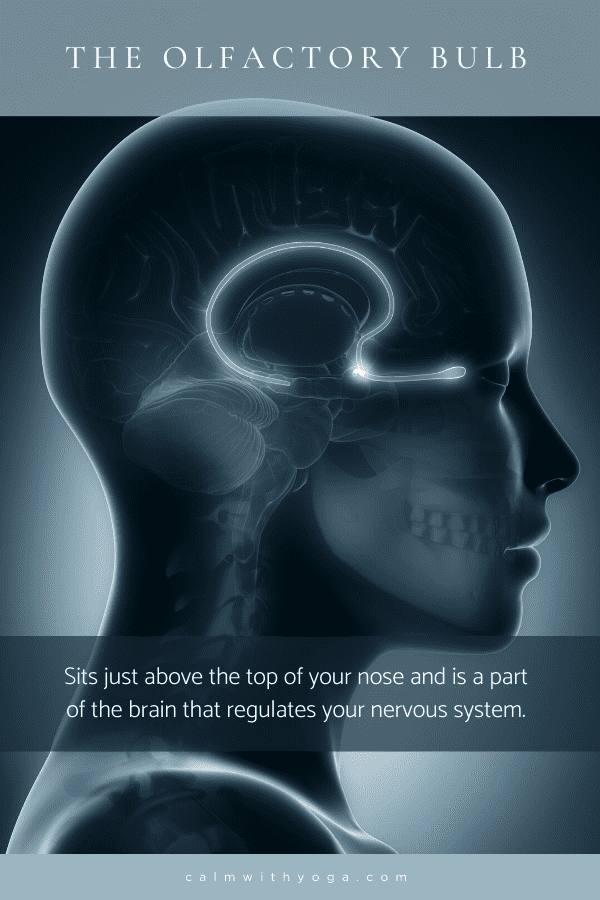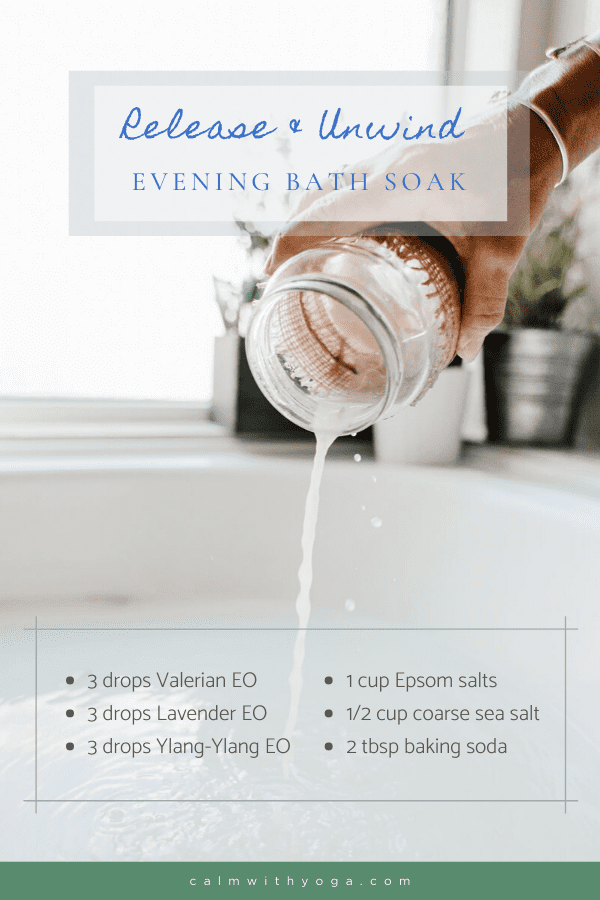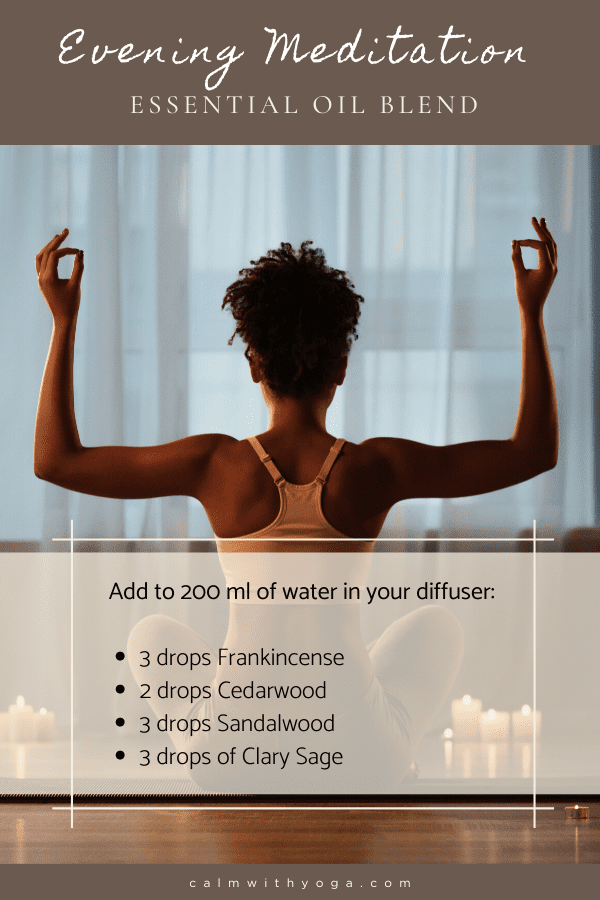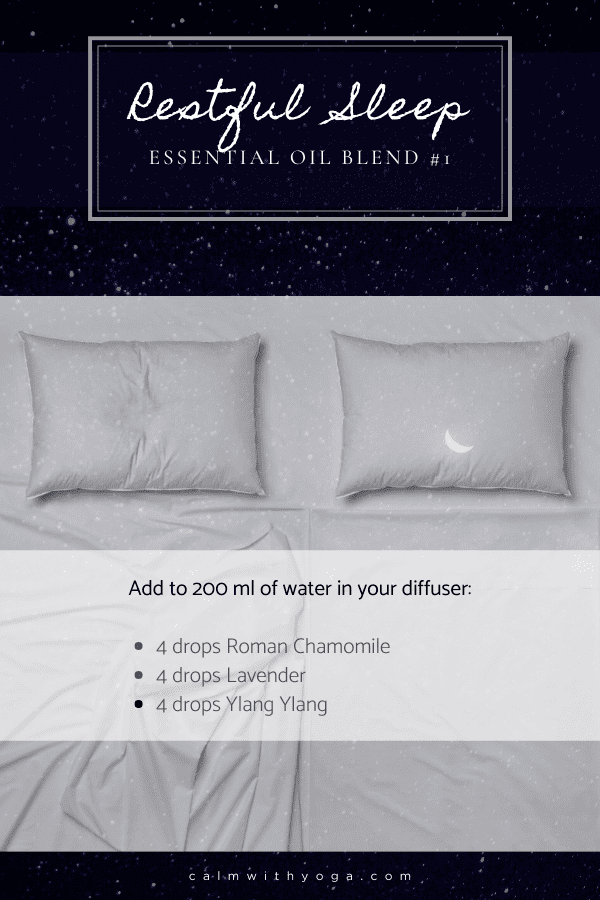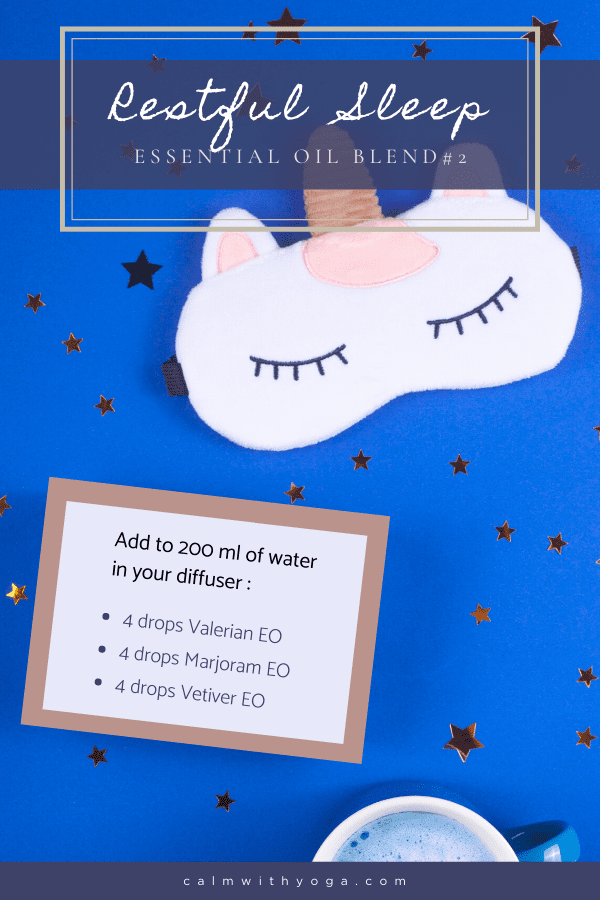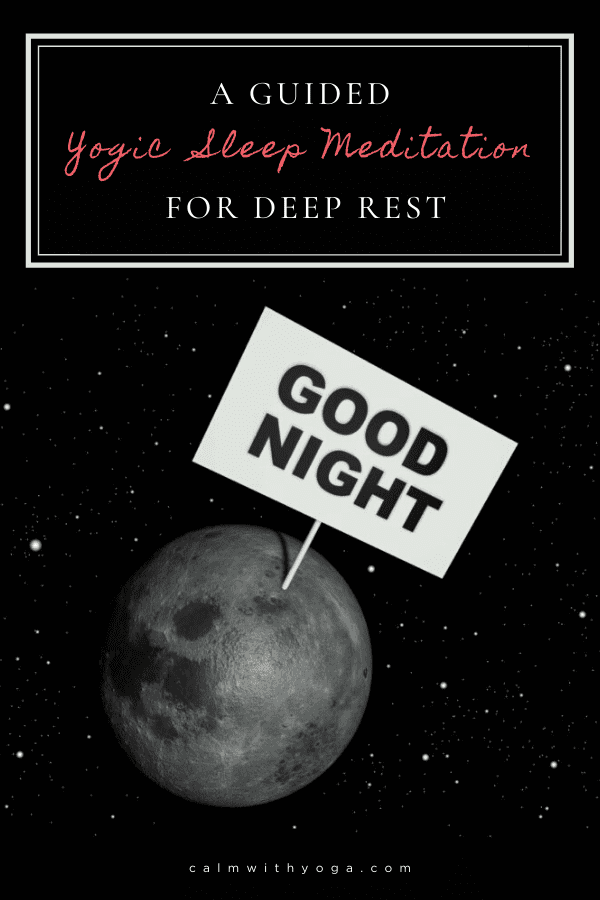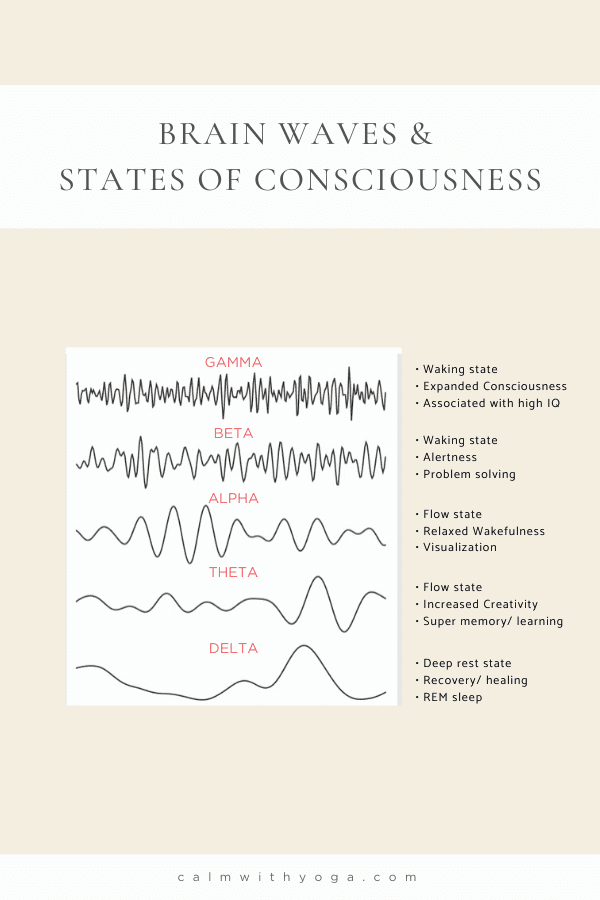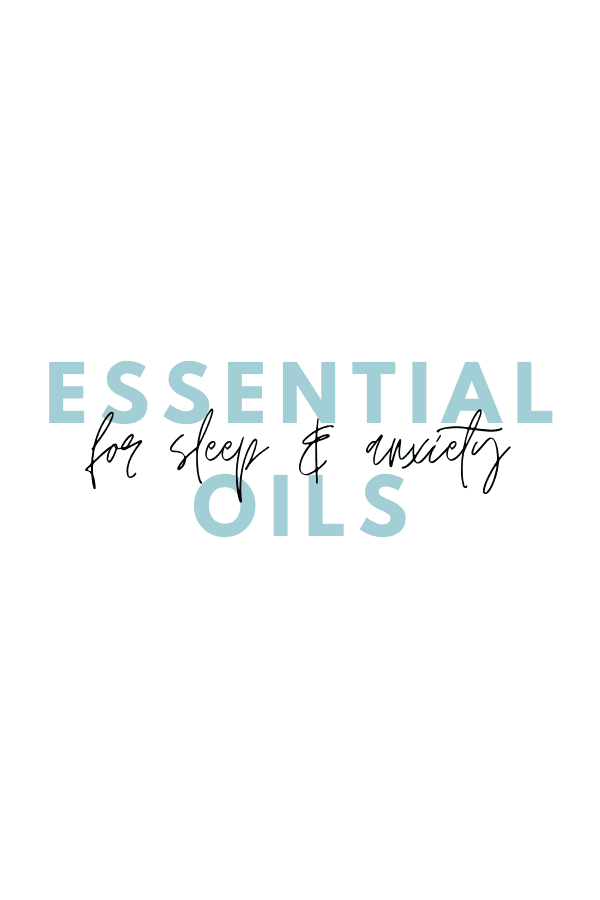Anxiety symptoms like a rapid heart rate and faster breathing send warning signals to your nervous system and keep you in chronic fight-or-flight stress mode. Being in stress mode lowers sleep quality, which creates a vicious cycle of feeling fatigued, run-down, depleted, and more anxious and stressed. If you’re looking for natural, safe options to manage anxiety, reduce stress, and facilitate restful sleep, essential oils are tools you want in your well-being arsenal.
Essential Oils As Nature’s Chill Pills
The use of essential oils as natural remedies has gained popularity as more research supports the many health benefits of these potent and healing plant extracts. Think of essential oils (EOs) as Mother Nature’s most concentrated form. Aromatherapy is an alternative medicine and holistic healing treatment that uses EOs to strengthen an individual’s health and wellness. Just a few drops of essential oil contains hundreds of active chemicals known to help strengthen immunity and manage various physical conditions such as:
Inflammatory conditions Treat colds and coughs Skin conditions like eczema and psoriasis Manage chronic pain and discomfort Soothe headaches and migraines Manage blood pressure
The effects of aromatherapy aren’t just useful for physical conditions; research shows EOs can also improve mental health, reduce anxiety, and improve insomnia. Inhaling EOs activates the limbic system of the brain, also known as the ‘emotional brain.’ This system oversees emotional responses such as fear and anxiety, arousal, and hormone production. When we inhale EOs, the active aromatic chemicals in them enter through the nose and reach the olfactory bulb, which sits atop the nose and is connected to the limbic brain.
This is the mechanism by which different oils can evoke other effects on mood and mind. For example, citrus oils like lemon, grapefruit, and bergamot are energizing and uplifting. Oils like lavender (Lavandula), sandalwood, and valerian have a more calming effect making them natural sedatives and relaxers without the grogginess and side effects of over-the-counter sleep medication.
The Best Essential Oils For Sleep Problems & Stress Relief According to Science
Lavender oil
A series of clinical trials showed that ingesting 80 mg once a day of steam-distilled lavender essential oil resulted in reduced restlessness and agitation amongst 221 patients suffering from an anxiety disorder. They also noted improved sleep quality and an increase in general wellbeing and quality of life. (1) Lavender oil has been shown to be a natural and effective alternative as a treatment for mild insomnia. (2) A 2018 animal study published in the journal Frontiers in Behavioral Neuroscience found that inhalation of linalool – one of the active ingredients in lavender – had an anxiolytic (anxiety-inhibiting) effect. (3) Another study comparing a 6-week oral daily dosage of 80 mg of lavender to lorazepam (an anxiety drug) found lavender to be just as effective at improving anxiety symptoms as 0.5 mg/daily of lorazepam in adults with GAD (generalized anxiety disorder). (4) Research also shows that inhaling lavender oil for just 5 minutes can significantly lower cortisol (stress hormone) levels. (5)
Chamomile oil
Chamomile oil can significantly improve sleep quality in intensive care unit patients better than other more conventional methods. (6) The inhalation of chamomile oil can result in a calmer state, a balanced mood, and an increased ability to achieve deep sleep. (7) Roman chamomile essential oil can significantly relieve anxiety and worry in intensive care unit patients better than other conventional methods. It also showed improved sleep quality in those same patients. (8) A study published in the journal Alternative Therapies in Health and Medicine found Chamomile to have a ‘clinically meaningful antidepressant activity‘ and be an anxiolytic (anxiety-reliever). (9) A study on 80 volunteers found that this oil’s inhalation resulted in less anxiety and improved sleep quality. (10)
Frankincense oil
When inhaled, the active ingredients in frankincense oil can augment feelings of positive emotions and warmth by influencing the brain. High-vibe emotions help us sleep more soundly, btw. (11) The active ingredients in frankincense also make it a potent anti-inflammatory. (12) Since insomnia and poor sleep habits cause inflammatory reactions, Frankincense oil can help lower inflammation and reduce the adverse effect of not sleeping enough. (13) Research suggests that when inhaled, the active ingredients in this oil can improve mental health and emotional well-being. (14)
Valerian oil
Inhalation of valerian oil has been shown to significantly prolong sleep time while increasing GABA (gamma-aminobutyric acid) activity in the brain. GABA is a neurotransmitter that helps your mind calm down and stay asleep throughout the night. (15)
Clary sage oil
Clary sage impacts the autonomic nervous system decreasing blood pressure and breathing rate while inducing the relaxation response. (16) Clary sage may also help to significantly lower anxiety levels in a mother’s active labor process. (17)
Vetiver oil
Researchers found that vetiver oil has a sedative effect. In an animal study investigating the effects of vetiver oil on the amygdala (a part of the brain that overseas emotions and the fear response), researchers found that vetiver has similar effects to diazepam, an anxiety medication. (18)
Other oils that may help you calm down and sleep are:
Ylang ylang oil Sandalwood oil Cedarwood oil Peppermint oil Geranium oil Sweet marjoram oil
Safety Concerns
When used safely and mindfully EOs usually offer little to no side effects though these are the things to look out for:
Allergic reactions Skin irritation Worsening of symptoms
Undiluted essential oils can cause skin irritation. You want to make sure you’re using 100% pure essential oil that is undiluted and certified organic. This ensures the highest healing benefits and potency and can also protect you against potentially harmful chemicals and solvents. Always perform a patch test on a non-affected area and wait 24 hours before proceeding to the affected area. Certain oils aren’t suitable for babies, young children, pregnant women, nursing moms, or if you have epilepsy or high blood pressure. Know the contraindications for each oil you’re going to use.
DIY Essential Oil Blends & Uses for Better Sleep & Less Anxiety
These blends contain the best essential oils to help you wind down and rest up. Remember, a little goes a long way. Inhaling just a few drops of essential oil should do the trick for a better night’s sleep. Keep in mind, again, that everyone reacts to oils differently so just pay attention to how your body responds. The best essential oil uses for sleep and relaxation are: 1 – Diffuser – essential oil diffusers break up and disperse active compounds into millions of small particles that fill the air. 2 – Bath soak – add EOs and Epsom salt to bath water for a nice relaxing soak.
4 – Massage oil – Dilute EOs with a carrier oil like jojoba oil, fractionated coconut oil, and sweet almond oil. Stick to 2-3 drops of EO per 1 tablespoon of carrier oil. Practice self-massage nightly before bed. 5 – Pillow mist – Fill a spray bottle with EOs and other ingredients and spritz on your pillowcase before bed
Evening Meditation Blend
Restful Sleep Blend #1
Restful Sleep Blend #2
How To Amplify Aromatherapy Effects With Yoga Breathing Meditation
Since trouble sleeping is often due to an overactive mind it’s a good idea to wind down with a guided sleep meditation, preferably just before bed. Ancient texts say that the true practice of Yoga is learning how to still the ripples of the mind. Neuroscientists today refer to stilling the mind’s ripples as shifting brainwaves. Brainwaves are the electrical currents of our minds at work, and they slow down as we calm down.
Yogic sleep meditation (aka yoga nidra) offers us an easy and pleasurable way to hit the snooze button and not soothe both body and mind. This type of meditation helps to slow down our brainwaves and has even been shown to help us reach delta brainwave state, also known as ‘the deep sleep state‘. (19) Pro tip: Use any of the EO blends listed below and turn your diffuser on while you meditate. Do this when you’re already in bed and ready to doze off. REFERENCES : (1) https://www.ncbi.nlm.nih.gov/pubmed/20512042/ (2) https://www.liebertpub.com/doi/abs/10.1089/acm.2005.11.631 (3) https://www.frontiersin.org/articles/10.3389/fnbeh.2018.00241/full (4) https://www.ncbi.nlm.nih.gov/pubmed/19962288/ (5) https://www.ncbi.nlm.nih.gov/pubmed/17291597 (6) https://www.ncbi.nlm.nih.gov/pmc/articles/PMC3588400/ (7) https://www.researchgate.net/publication/ (8) https://www.ncbi.nlm.nih.gov/pmc/articles/PMC3588400/ (9) https://www.ncbi.nlm.nih.gov/pmc/articles/PMC3600408/ (10) https://www.researchgate.net/publication/229226111_Expectancy_and_the_aroma_of_Chamomile_influence_mood_and_cognition_in_healthy_volunteers (11) https://www.ncbi.nlm.nih.gov/pmc/articles/PMC2493463/ (12) https://www.ncbi.nlm.nih.gov/pubmed/17895408 (13) https://www.ncbi.nlm.nih.gov/pmc/articles/PMC4666828/ (14) https://www.ncbi.nlm.nih.gov/pubmed/31556690 (15) https://academic.oup.com/chemse/article/31/8/731/363897 (16) https://www.ncbi.nlm.nih.gov/pmc/articles/PMC3700459/ (17) https://www.ncbi.nlm.nih.gov/pubmed/17506789/ (18) https://www.ncbi.nlm.nih.gov/pubmed/25553641 (19) https://www.iaytjournals.org/doi/pdf/10.17761/ijyt.23.1.t636651v22018148
